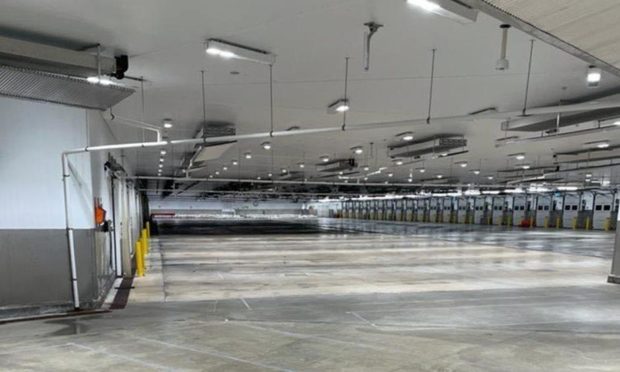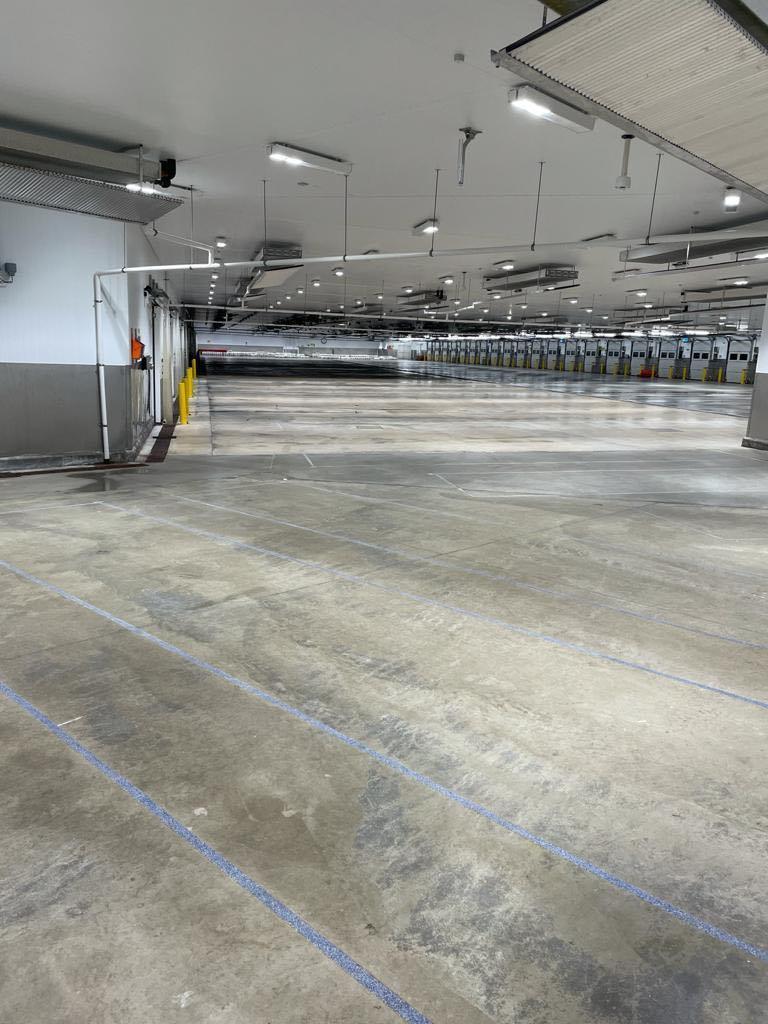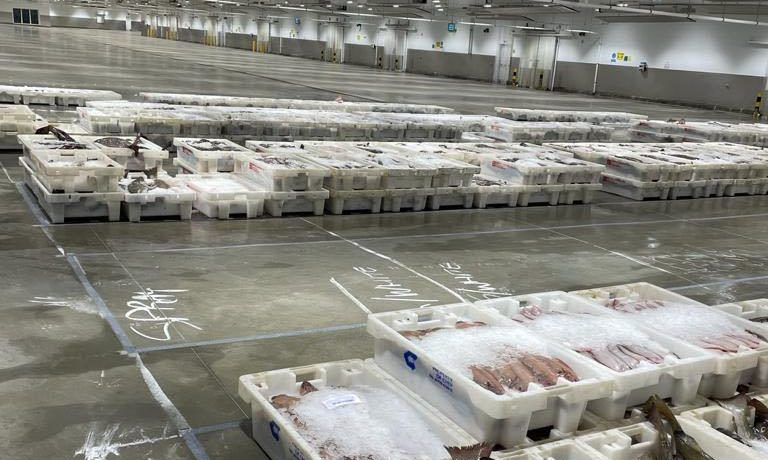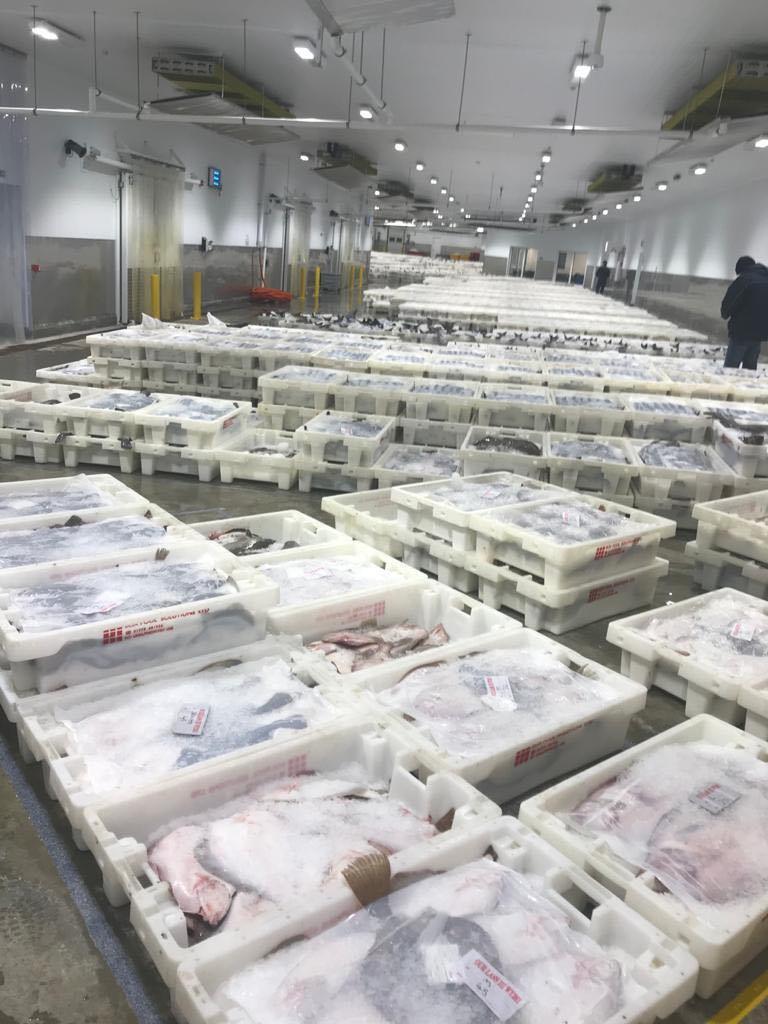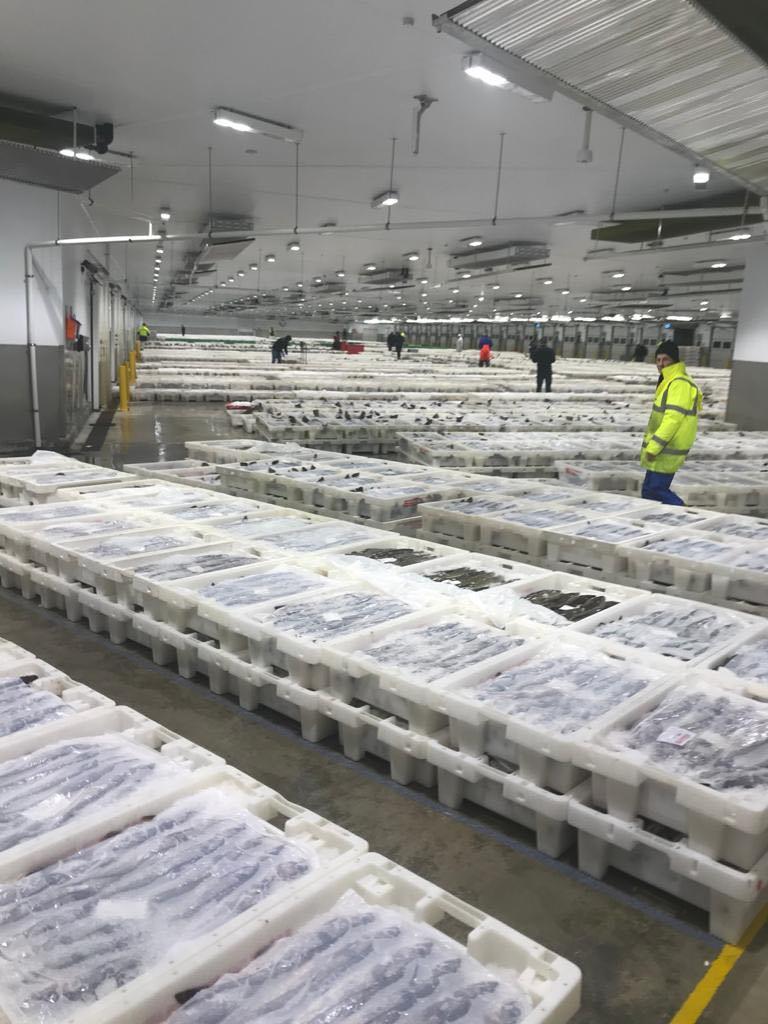Pictures have emerged of the Peterhead Fish Market which shows the real impact of Brexit with only 400 boxes available for firms to purchase, out of a possible 6,500.
A north-east processer has spoken out about his frustrations with Brexit as pictures of Peterhead Fish Market showed just 400 boxes making it to market earlier this morning.
The usual capacity of 10,000 boxes of fish at the venue has been reduced to 6,500 as a result of the coronavirus pandemic, but this morning William Clark, managing director of Wilsea, said just 400 boxes were available for purchasing, far less than usual.
Mr Clark, who has been working in Peterhead since 1995 says his understanding of the market is that there is a feeling among some fisherman that there is less of a need for their product, something he says couldn’t be further from the truth.
He said: “Pre-Covid it has a capacity of 10,000 boxes. Because of Covid there is a capacity of 6,500 every day, but today there was only 400.
“I think this is a result of negativity from the press and on the TV where fisherman have been scared to go to sea as they feel there’s not a market for their product, although people have to realise there’s a market in the UK which needs serviced.
“It is probably one of the biggest markets on our doorsteps and it has been grossly overlooked for years.
“The situation now is we’ve had vessels landing their catch in Denmark and going to the factories that they have been advised to or feel is a better route to market.
“If you starve a local community you end up losing the infrastructure and the port, and before you know it Peterhead could become a garage for boats.”
From essential workers to closures
With essential worker status, William is unsure how the industry has gone from being at the forefront of feeding the nation, to factories closing down and fish markets being near enough empty.
He added: “The whole world has had a horrendous 12 months and at the end of the day we have worked and serviced the industry as best we can.
“Throughout lockdown we were classed as essential workers, but if we have no raw material or nothing to put into the food chain then how do we keep our staff?
“If you begin to lose these skilled workers, what does that look like? There’s already been a few factories that have called it a day before Christmas.
If you starve a local community you end up losing the infrastructure and the port, and before you know it Peterhead could become a garage for boats.”
William Clark of Wilsea.
“It’s a trend you don’t really want to continue. We have to nurture what industry we have left in this country. Although the fishing deal was a bit of a toss up between a nativity play and the deal itself, and it looks like the nativity play won.”
Continuous decline
Although William says there has been a slow decline in produce making its way to market since he first started operating in the Peterhead area 26 years ago, he is concerned.
“Every year I have seen it decline. The industry itself is very resilient and goes from one catastrophe to the next,” said William.
“We’re still here, still trying to employ people and pay tax. It is a win-win for the government in that sense and could be a growth industry but that hasn’t really been inhibited with the deal.
“We’ve been here before at low levels due to adverse weather conditions but it just seems like someone has turned off a tap. It has gone from hero to zero in the space of two weeks.
“We were running at capacity two weeks ago and now with all that’s going on, there’s not much going on. There’s a market that needs to be serviced here in the UK, we can’t forget that.”
Peterhead Fish Market near enough empty
And he’s not the only one to notice the huge decrease in the amount of fish coming through the market’s doors, with supplier of Scottish fish Jack Taylor sharing this video of a near empty market.
James Withers, chief executive of Scotland Food & Drink also shared William’s images on Twitter to showcase the challenges the fishing industry is facing.
His Tweet has 1K comments on it and has been retweeted more than 7.8K times since he posted it.
What a sad sight. Europe’s biggest fish market in Peterhead like a ghost town. Built to deal with 10,000 boxes/day but with a few hundred.
Boats tied up, exporters crippled.
No Brexit image of lorry queues, it’s the sight of trade that isn’t moving at all. Pics via @will051266 pic.twitter.com/JLCYRCGh3P— James Withers (@scotfoodjames) January 19, 2021
Brexit fishing delays
He said: “Even in the middle of the pandemic when we had restricted access to some normal markets, thousands of boxes of fish would be landed and sold at Peterhead market.
“What we now have is a crisis of a different order and the door has slammed shut for many exporters to the EU causing a ripple effect through the whole supply chain.
“Despite all the warnings we sounded that systems were not ready for Brexit, including from the National Audit Office, a new multi-billion trading framework started on January 1 without having been tested.
“The result is most painful for seafood, with exports stopped for many and even those managing to get some product through, volumes are up to 90% down.
“With fishing boats now tied up, we see a sparse fish market and a threat to our processing infrastructure here in Scotland. But the problems are not confined to seafood, with some red meat businesses counting the cost of lost sales too.
“There are solutions though. Compensation may heal some of the immediate wounds, but the UK Government needs to urgently have dialogue with the European Commission to agree a grace period on the new rules, just as we asked for last year.
“The UK Government is already waiving checks on EU imports, we need the same for our exports. This can buy us time to fix broken systems and, crucially, consider whether the current bureaucratic requirements can be simplified. After all, we meet all EU production standards.”
“In the absence of that fast action, we will see permanent business casualties.”
Peterhead Port Authority has been contacted for comment.
